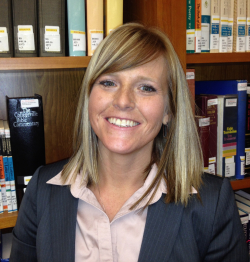
No Longer Experts: Teaching in Politically Unstable Times
Countless hate crimes since Election Day already show the widespread effect of the President-Elect’s unpredictable nature and his death-inducing ideologies: racism, islamophobia, heteropatriarchy, xenophobia, anti-Semitism.
What do we as higher educators do when our global context is unstable, the future is uncertain, and the local context is even dangerous for our students?
The first matter is safety. We need to make sure that our students are safe. If they are not, we need to point them to resources for protection and help. As teachers in a divided nation, we cannot add to the authoritative calls for unity, which serve only to silence the cries of the oppressed further. Advising victims to be in union with their oppressors is dangerous. What we can do is signal to our students—especially those who are immigrants, people of color, LGBT, Muslim, Jewish—that our classroom is a safe zone. Wearing a safety-pin may offer them a palpable sign, but that’s just the tip of the iceberg. A much deeper and more credible sign is committed to work to fixing these systemic injustices, both inside and outside of the classroom. For example, as a white professor, I could claim that I’m not racist, or I could actively engage in anti-racist work. The difference is critical for our students given the current political climate, wherein silence signals complicity.
As higher educators, writing and teaching are the areas in which we can give ourselves the most effectively because this is where we are trained and have expertise. Yet perhaps like many of you, I have felt the need lately to re-evaluate everything I’ve ever done. The current context of global oppression demands this. It is urgent that we remove any curriculum and practice that reinforces systems of domination. It is also time, if we have not already done so, to heed bell hooks’ call to “take the risks that engaged pedagogy requires” and make our very “teaching practices a site of resistance.”[1]
Practically speaking, in terms of content and curriculum, it should be a given that we include in our reading lists those groups often underrepresented intellectually. What we “progressive” professors are often unaware of, however, is how we use such readings. As Stephen Ray warns, we cannot keep placing the “texts of historically marginalized communities” at the “margins of conversation” (e.g., using Hildegard of Bingen as a “counterfoil” to Anselm's atonement theory or James Cones as a critique of the white American theological tradition). Such usage results in our students experiencing “these thinkers as primarily kibitzers and only vaguely as primary contributors to the tradition.”[2] Given that white nationalists are rising to cabinet level authority in our current political context, it is imperative that we stop centering the work of European male thinkers.
This also relates to how we manage the space/time given to marginalized students within our classroom. hooks suggests “an inversion of hierarchal structures,” wherein the professor uses her/his authority to decenter the voices of the privileged.[3] One pedagogical strategy, for instance, would be to begin each class of an entire semester with a reading from the Quran. This not only resists islamophobia but also signifies to the class the privileging of Muslim students’ voices. As hooks reminds us, we professors too often critique domination from an intellectual perspective, emphasizing “an understanding of the politics of difference, of race, class gender, even though classroom dynamics remain conventional, business as usual.”[4] As election exit polls have shown, our white students have a long way to come in understanding intersectionality; maybe this is why.
Furthermore, in this post-election aftermath, teachers of religion and theology need to be asking ourselves an obvious and basic question: Do our students have the ability to recognize that their political stances rely on particular theological or philosophical assumptions? In more general terms, no matter which topic we teach, we need to consider the degree to which our pedagogies reinforce the dualistic separation of the public and private spheres and the mind/body split.[5] Do we craft assignments that require students to make connections between their life experiences and course material? As teachers, do we model these connections for our students?
I invite discussion in the comment boxes below. What pedagogical strategies of resistance have you used effectively? Please be specific.
[1] bell hooks, Teaching to Transgress: Education as the Practice of Freedom (New York: Routledge, 1994), 21.
[2] Stephen Ray, “E-Racing While Black,” in Being Black, Teaching Black: Politics and Pedagogy in Religious Studies, ed. Nancy Lynne Westfield (Nashville: Abingdon Press, 2008), 52.
[3] hooks, 188.
[4] Ibid., 180.
[5] Ibid., 16.
Leave a Reply